Find Help
More Items From Ergsy search
-

Migraine
Relevance: 100%
-

Migraine
Relevance: 99%
-

Migraine | NHS
Relevance: 95%
-

Migraine | NHS
Relevance: 94%
-
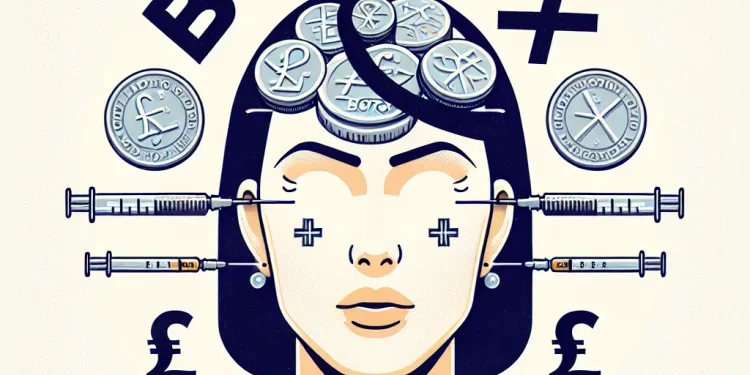
Can Botox be used for migraines?
Relevance: 85%
-

What are migraines and cluster headaches?
Relevance: 85%
-

What are headaches?
Relevance: 34%
-

What is Botox used for?
Relevance: 30%
-

What is a common use of paracetamol?
Relevance: 28%
-

Can Botox be used for treating conditions other than wrinkles?
Relevance: 28%
-
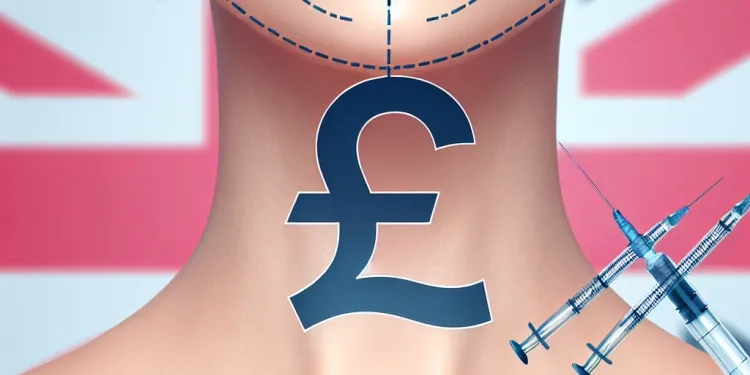
What areas can be treated with Botox?
Relevance: 26%
-

What is Botox?
Relevance: 24%
-
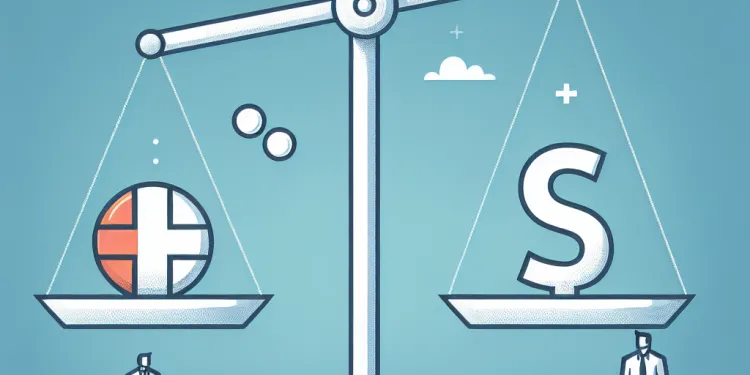
Which one is better for headaches: Aspirin or Paracetamol?
Relevance: 23%
-

What are the common uses of Botox?
Relevance: 20%
-

How long has Botox been used in medicine?
Relevance: 19%
-

Can I get Botulism from Botox Treatments?
Relevance: 18%
-
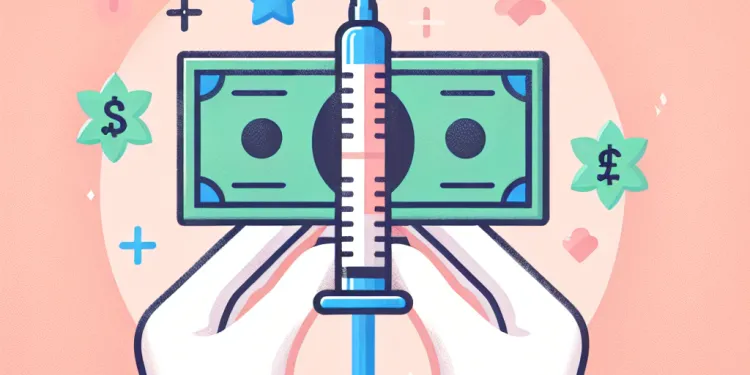
Can anyone get Botox treatments?
Relevance: 18%
-

What is Botox made from?
Relevance: 17%
-

How does Botox work?
Relevance: 17%
-

Is Botox safe?
Relevance: 16%
-

How does Botox work if it's related to botulism toxin?
Relevance: 16%
-

Can Botox cause serious health issues?
Relevance: 16%
-
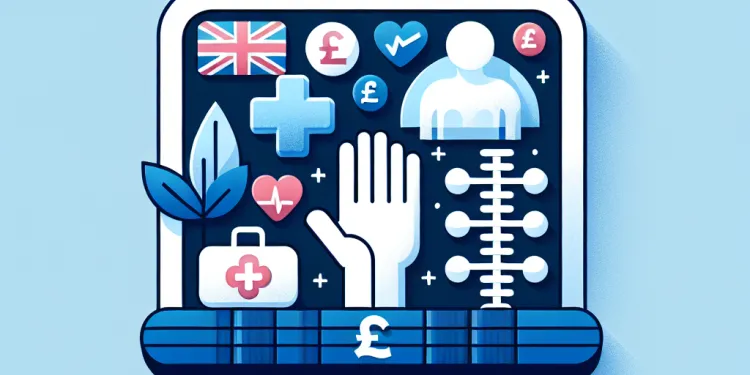
Can chiropractors help with headaches?
Relevance: 15%
-
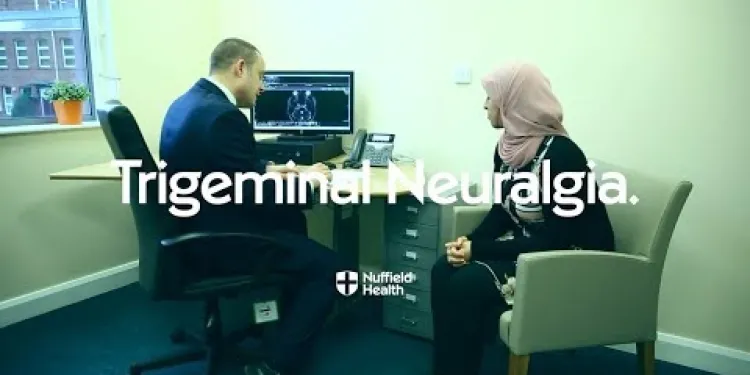
Trigeminal Neuralgia
Relevance: 13%
-

Am I affected by Sodium Valproate?
Relevance: 13%
-
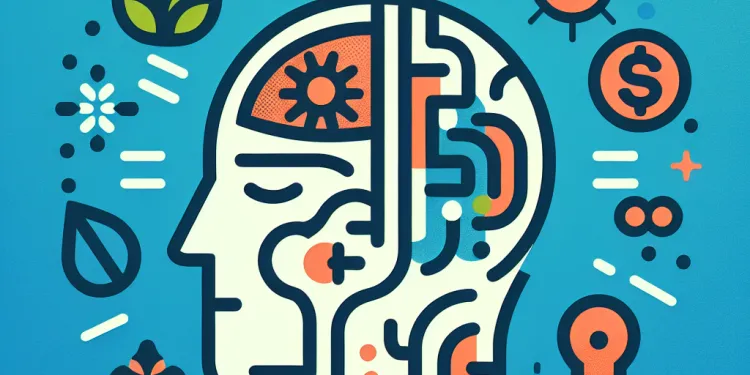
Is headache a symptom of a concussion?
Relevance: 12%
-

What are some common conditions treated with homeopathy?
Relevance: 12%
-

What are the uses of cannabis extract?
Relevance: 12%
-
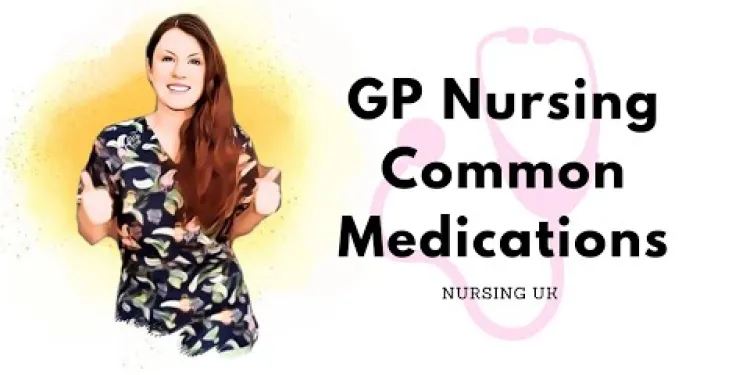
GP Nursing Most Common Medications UK.
Relevance: 12%
-

Symptoms of coeliac disease
Relevance: 11%
-

What are the potential benefits of CBD?
Relevance: 11%
-

Are there any long-term effects of using Botox?
Relevance: 10%
-

Who should avoid using caffeine pouches?
Relevance: 10%
-

Can hay fever symptoms mimic other conditions?
Relevance: 10%
-

Chiropractic Care on the NHS
Relevance: 7%
-

Who founded homeopathy?
Relevance: 6%
-

Is homeopathy widely used in the UK?
Relevance: 5%
-

Do chiropractors only treat the spine?
Relevance: 5%
-

Can homeopathy treat all medical conditions?
Relevance: 5%
-

Is Botox safe?
Relevance: 5%
Migraine: Understanding And Managing The Condition
What is a Migraine?
A migraine is a severe headache that is often accompanied by symptoms such as nausea, vomiting, and sensitivity to light or sound. It typically manifests as a throbbing pain on one side of the head, though it can affect both sides. Migraines can significantly impact daily life, making it difficult to carry out routine tasks. They can last anywhere from a few hours to several days.Types of Migraines
Migraines can be classified into several types, with the most common being:Migraine without Aura
This is the most common type of migraine. It consists of a headache phase with no sensory disturbances beforehand.Migraine with Aura
These migraines entail warning signs before the actual headache starts. Symptoms of an aura can include visual disturbances, such as flashing lights, zigzag patterns, and even temporary vision loss. Other aura symptoms can involve tingling sensations, difficulty speaking, and muscle weakness.Chronic Migraines
Chronic migraines are characterized by headaches occurring on 15 or more days per month for more than three months, with at least eight of those headaches classified as migraines.Causes and Triggers
The exact causes of migraines are still not completely understood, but genetics and environmental factors are believed to play a role. Common triggers include: - **Stress:** Emotional stress can trigger migraines. - **Sleep Patterns:** Both lack of sleep and oversleeping can cause migraines. - **Dietary Factors:** Certain foods and drinks, such as cheese, alcohol, and caffeine, are known triggers. - **Hormonal Changes:** Women often experience migraines related to hormonal changes during their menstrual cycle, pregnancy, or menopause.Diagnosis
Diagnosing a migraine primarily involves discussing your symptoms and medical history with your GP. Keeping a headache diary can be helpful in identifying patterns and triggers. In some cases, additional tests such as a MRI or CT scan may be recommended to rule out other conditions.Treatment Options
While there's no cure for migraines, several treatment options can help manage the symptoms and reduce the frequency of attacks: - **Medication:** Over-the-counter pain relievers like paracetamol, aspirin, and ibuprofen can be effective. Triptans are another common medication used specifically for migraines. - **Lifestyle Changes:** Regular exercise, adequate hydration, a balanced diet, and sufficient sleep can help in reducing migraine frequency. - **Avoiding Triggers:** Identifying and avoiding known triggers can prevent the onset of migraines.When to Seek Medical Advice
If you are experiencing frequent or severe migraines that impact your quality of life, it's essential to seek medical advice. Additionally, see your GP if you notice any of the following: - An unusually severe headache that comes on suddenly - A headache accompanied by fever, stiff neck, confusion, or seizures - Persistent headaches after an injuryLiving with Migraine
Living with migraines can be challenging, but a combination of lifestyle modifications, medication, and the support of healthcare professionals can help manage the condition effectively. For more information, resources, and support, visit the NHS website or consult with your GP.Migraine: Understanding And Managing The Condition
What is a Migraine?
A migraine is a strong headache. It can make you feel sick, vomit, and be sensitive to light or sound. It usually feels like a pounding pain on one side of your head, but it can also be on both sides. Migraines can make it hard to do daily things. They can last from a few hours to a few days.Types of Migraines
There are different types of migraines. The most common ones are:Migraine without Aura
This is the most common type. You get a headache with no warning signs.Migraine with Aura
These migraines have warning signs before the headache starts. You might see flashing lights, zigzag lines, or even lose vision for a short time. You might feel tingling, find it hard to speak, or feel weak in your muscles.Chronic Migraines
Chronic migraines happen when you have headaches on 15 or more days a month for over three months. At least eight of these headaches should be migraines.Causes and Triggers
We don’t know exactly what causes migraines, but genes and the environment might be part of it. Common things that can trigger a migraine are: - **Stress:** Feeling stressed can start a migraine. - **Sleep Patterns:** Not enough sleep or too much sleep can cause migraines. - **Dietary Factors:** Foods like cheese, drinks like alcohol, and caffeine can trigger migraines. - **Hormonal Changes:** Women might get migraines with changes in hormones, like during periods, pregnancy, or menopause.Diagnosis
To find out if you have migraines, you talk to your doctor about your symptoms and health history. Keeping a diary of your headaches can help find patterns and triggers. Sometimes, your doctor might suggest tests like an MRI or CT scan to check for other conditions.Treatment Options
There is no cure for migraines, but you can manage them with these options: - **Medication:** Painkillers like paracetamol, aspirin, and ibuprofen can help. Triptans are medicines specifically for migraines. - **Lifestyle Changes:** Exercise regularly, drink enough water, eat a balanced diet, and get enough sleep to reduce migraines. - **Avoiding Triggers:** Find out what starts your migraines and try to avoid those triggers.When to Seek Medical Advice
If your migraines are frequent or very bad and affect your life, see a doctor. Also, go to your doctor if you have: - A sudden, very bad headache - A headache with fever, a stiff neck, confusion, or seizures - Headaches that continue after an injuryLiving with Migraine
Living with migraines can be hard. But with changes in lifestyle, medicines, and help from doctors, you can manage them. For more help, visit the NHS website or talk to your doctor.Frequently Asked Questions
What are the common symptoms of a migraine?
Common symptoms include a severe headache, usually on one side of the head, nausea, vomiting, and sensitivity to light or sound. Some people may also experience visual disturbances known as aura.
What triggers migraines?
Triggers vary but can include stress, certain foods and drinks, hormonal changes, lack of sleep, and sensory stimuli like bright lights or strong smells.
How long does a migraine usually last?
Migraines can last from a few hours to several days, with most lasting around 4 to 72 hours if untreated.
Are there different types of migraines?
Yes, the main types are migraine with aura, migraine without aura, and silent migraine (aura without headache). Each has different symptoms and characteristics.
What over-the-counter medications can help with migraines?
Common over-the-counter medications include pain relievers such as paracetamol, ibuprofen, and aspirin. These are often effective when taken at the first sign of a migraine.
When should I see a GP about my migraines?
You should see a GP if your migraines are severe, frequent, or affecting your daily life. Also, seek medical advice if over-the-counter medications do not help or if you experience new symptoms.
Can lifestyle changes help prevent migraines?
Yes, maintaining a regular sleep schedule, eating balanced meals, staying hydrated, managing stress, and avoiding known triggers can help reduce the frequency and severity of migraines.
Are there prescription medications for migraines?
Yes, there are prescription medications available to both prevent migraines and treat migraine attacks. These include triptans, anti-emetics, and preventative medications like beta-blockers or anti-seizure drugs.
What is a migraine aura?
A migraine aura is a set of sensory disturbances that can occur before or during a migraine. It often includes visual disturbances like flashes of light, blind spots, and other vision changes, but can also involve tingling, numbness, and difficulty speaking.
Can diet affect migraines?
Yes, certain foods and drinks, such as aged cheeses, chocolate, alcohol, and caffeinated beverages, can trigger migraines in some people. Keeping a food diary can help identify and avoid specific triggers.
Is it possible to have a migraine without a headache?
Yes, this is known as a silent migraine or migraine aura without headache. It involves the visual or sensory symptoms of a migraine aura but does not include the typical headache.
What non-medication treatments are available for migraines?
Non-medication treatments include cognitive behavioural therapy (CBT), acupuncture, biofeedback, and relaxation techniques. These can help manage and reduce migraine severity and frequency.
Can children get migraines?
Yes, children can experience migraines. The symptoms in children can be similar to those in adults, though they may be less able to articulate their symptoms. It's important to consult a GP if your child has frequent or severe headaches.
What should I do during a migraine attack?
During a migraine attack, rest in a quiet, dark room, stay hydrated, and use cold or warm compresses on your head or neck. Taking medication early in the attack can also be more effective.
Can stress management techniques help reduce migraines?
Yes, stress management techniques such as mindfulness, yoga, meditation, and regular exercise can help reduce the frequency and severity of migraine attacks.
What are the common symptoms of a migraine?
Migraine is when your head hurts a lot. Here are some signs:
- Your head really hurts on one side.
- You might feel sick in your tummy.
- Bright lights or loud noises can bother you.
- You might see zig-zag lines or flashing lights before your head hurts.
- You could feel dizzy or very tired.
If you think you have a migraine, here are some things you can try:
- Rest in a dark, quiet room.
- Put a cool cloth on your forehead.
- Drink water.
- Ask a grown-up to help.
Common signs are a strong headache, often on one side of the head. People might feel sick, throw up, or find bright lights and loud sounds hard to handle. Some might also see things like flashing lights, called aura.
What makes migraines happen?
Things that can start a migraine are different for everyone. Common triggers are stress, certain foods and drinks, changes in hormones, not getting enough sleep, and bright lights or strong smells.
How long does a migraine last?
A migraine is a really bad headache. It can make you feel sick and light can hurt your eyes.
A migraine usually lasts a few hours, but sometimes it can go on for up to 3 days.
If you have migraines a lot, try keeping a diary. Write down when you get them and what you did that day. This can help you and your doctor find out what makes them happen.
Migraines are really bad headaches. They can last for a short time or a long time. A migraine can be over in a few hours, but sometimes it lasts for days. Most last 4 hours to 3 days if you don't get help.
Are there different kinds of migraines?
Yes, there are different kinds of migraines. A migraine is a strong headache that can make you feel very sick. Here are some kinds of migraines:
- Migraine with aura: You might see flashing lights or zig-zag lines before the headache starts.
- Migraine without aura: This is a very painful headache that happens without any warning signs.
- Chronic migraine: This means you have headaches on 15 or more days each month.
To feel better, you can try to:
- Rest in a quiet, dark room.
- Put a cool cloth on your forehead.
- Drink plenty of water.
- Ask a grown-up or a doctor for help if the pain is very bad.
Yes, there are three main types of migraines:
1. **Migraine with Aura**: You might see flashing lights or feel strange before the headache starts.
2. **Migraine without Aura**: You get a headache, but without any warning signs.
3. **Silent Migraine (Aura without Headache)**: You see or feel the warning signs, but you don’t get a headache.
If you have trouble reading, try using audiobooks or text-to-speech apps to listen instead. You can also use a ruler or your finger to help keep your place while reading.
What medicines from the shop can help with bad headaches?
There are some medicines you can buy without a prescription for headaches. These include paracetamol, ibuprofen, and aspirin. They work well if you take them as soon as you feel a migraine starting.
When should I see a doctor about my headaches?
If you have headaches, here is when you should see a doctor:
- If your headaches happen a lot.
- If the pain is very bad.
- If the pain stops you from doing things.
- If you feel sick or see flashing lights.
- If you have other worries about your headaches.
It can help to:
- Write down when the headaches happen.
- Write down what you ate and what you did before the headache.
- Bring this information when you see the doctor.
See a doctor if your headaches are very bad, happen often, or stop you from doing what you need to do every day. Also, talk to a doctor if the medicine you buy in shops doesn't help, or if you notice new problems.
Can Changing How You Live Help Stop Headaches?
Yes, doing some simple things can help you have fewer migraines and make them less painful. Try to go to bed and wake up at the same time every day. Eat healthy meals and drink plenty of water. Find ways to feel calm and avoid things you know can cause your migraines.
Can doctors give medicine for migraines?
If you often have bad headaches called migraines, a doctor can help. They can give you special medicine to make you feel better. Talk to your doctor to find out what medicine is best for you.
You can also try using a headache diary. Write down when you get headaches and how bad they are. This can help your doctor understand your migraines better.
Listening to calming music or trying to rest in a dark, quiet room can also help when you have a migraine. Tell someone if you need help.
Yes, there are special medicines your doctor can give you to stop migraines from happening and help when you have a migraine. Some of these medicines help calm a headache during an attack, like triptans. Others can stop you from getting migraines as often. These might be medicines for blood pressure or for stopping seizures.
What is a migraine aura?
A migraine aura is something you might see or feel before getting a bad headache called a migraine. It can be like seeing flashing lights or zigzag lines. Sometimes, people feel tingles in their hands or face.
Helpful tip: If you get a migraine aura, it might help to sit in a quiet, dark room. You can also ask an adult for help or talk to a doctor about it.
A migraine aura is when you feel weird things before or during a migraine headache. It can make you see flashing lights, have blind spots, and cause other changes in what you see. You might also feel tingles, numbness, or find it hard to talk.
Helpful tips:
- Take deep breaths to stay calm.
- Rest in a dark, quiet room during a migraine.
- Use special sunglasses to help with bright lights.
Can what you eat cause headaches?
Some foods might make headaches worse.
Everyone is different, so what bothers one person might not bother another.
If you get headaches, try to write down what you eat. This can help you figure out if certain foods make your headaches worse.
Talk to a doctor or a nutritionist. They can help you learn more about food and headaches.
Yes, some foods and drinks can cause headaches for some people. These include old cheeses, chocolate, alcohol, and drinks with caffeine. It helps to write down what you eat in a food diary. This way, you can find out which foods cause headaches and try to avoid them.
Can you have a migraine without getting a headache?
Yes, you can get a migraine without a headache. Sometimes people feel sick, see zig-zag lines, or have trouble with light or sounds. These are still migraines, even if your head doesn't hurt.
If you think you have a migraine, it's a good idea to talk to a doctor. They can help you feel better. Remember to rest in a quiet, dark place, and drink water.
Yes, this is called a silent migraine or migraine aura without headache. You might see flashing lights or feel strange, but you don't get the usual headache.
What other treatments can help with migraines besides medicine?
Here are some ways to help with migraines without using medicine:
- Relaxation: Try to stay calm and rest in a quiet, dark room.
- Exercise: Gentle activities like walking or yoga can help.
- Drink Water: Make sure to drink enough water every day.
- Sleep Well: Get plenty of sleep. Try to go to bed and wake up at the same time each day.
- Massage: A gentle head or neck massage might help.
- Cold or Warm Packs: Put a cold or warm pack on your head or neck.
- Food: Eat regular meals and avoid foods that might cause migraines.
If you need help, ask a doctor or a healthcare provider.
There are ways to help with migraines that do not use medicine. These include:
Cognitive Behavioural Therapy (CBT): This type of talk therapy can help change how you think and feel.
Acupuncture: This is when very small needles are put in the body to help you feel better.
Biofeedback: This uses a special computer to show you how your body works, so you can learn to control things like your heartbeat or breathing.
Relaxation Techniques: These are ways to help you calm down and relax, like deep breathing or listening to quiet music.
All of these can help make migraines hurt less and happen less often.
Can kids have migraines?
Yes, kids can have migraines. Migraines are really strong headaches. If a kid gets migraines, their head might hurt a lot. They might feel sick or have trouble seeing.
Here are some things that can help if a kid has migraines:
- Rest in a cool, quiet, dark room.
- Drink water to stay hydrated.
- Put a cold cloth on their head.
- Ask a grown-up for help.
Going to a doctor can be a good idea if the headaches keep happening. The doctor can help find ways to feel better.
Yes, kids can get bad headaches called migraines. These headaches can feel like the ones grown-ups get. But kids might find it hard to explain how they feel. If your child often has headaches or they are very painful, it's a good idea to talk to a doctor.
What can I do when I have a migraine?
A migraine is a bad headache. It can make you feel very sick and want to rest. Here are some things you can do:
- Rest in a quiet, dark room: Find a place that is quiet and dark. It can help you feel better.
- Use a cold or warm cloth: Put a cloth that is cold or warm on your forehead. It can help with the pain.
- Drink water: Make sure you drink enough water. It can help you feel better.
- Take deep breaths: Breathe in and out slowly. It can help you relax.
- Medicine: Ask a grown-up for medicine if you need it. It can help with the headache.
These things can help when you have a migraine. If the migraine is very bad, ask for help from a grown-up or a doctor.
When you have a migraine:
- Rest in a quiet and dark room.
- Drink water, so you don't get thirsty.
- Put a cold or warm cloth on your head or neck.
- Take medicine early to help it work better.
These steps can make you feel better.
Can ways to manage stress help with headaches?
Do you get bad headaches called migraines? Trying to feel calm and happy might help. Here are some simple things you can do:
- Take slow breaths: Breathe in slowly and let it out slowly. This can help you feel calmer.
- Relax your muscles: Try to relax each part of your body. Start with your toes and go to your head.
- Try talking to someone: Share your feelings with a friend or family member. Talking can make you feel better.
- Write it down: Keep a diary of your feelings and what makes you stressed.
If you have trouble reading, you can use audiobooks or text-to-speech tools. These read the words out loud for you.
Yes, there are ways to help with stress that can make migraines happen less often and hurt less.
You can try things like mindfulness, yoga, meditation, and regular exercise.
Useful Links
- Ergsy carfully checks the information in the videos we provide here.
- Videos shown by Youtube after a video has completed, have NOT been reviewed by ERGSY.
- To view, click the arrow in centre of video.
- Most of the videos you find here will have subtitles and/or closed captions available.
- You may need to turn these on, and choose your preferred language.
- Go to the video you'd like to watch.
- If closed captions (CC) are available, settings will be visible on the bottom right of the video player.
- To turn on Captions, click settings .
- To turn off Captions, click settings again.
More Items From Ergsy search
-

Migraine
Relevance: 100%
-

Migraine
Relevance: 99%
-

Migraine | NHS
Relevance: 95%
-

Migraine | NHS
Relevance: 94%
-

Can Botox be used for migraines?
Relevance: 85%
-

What are migraines and cluster headaches?
Relevance: 85%
-

What are headaches?
Relevance: 34%
-

What is Botox used for?
Relevance: 30%
-

What is a common use of paracetamol?
Relevance: 28%
-

Can Botox be used for treating conditions other than wrinkles?
Relevance: 28%
-

What areas can be treated with Botox?
Relevance: 26%
-

What is Botox?
Relevance: 24%
-

Which one is better for headaches: Aspirin or Paracetamol?
Relevance: 23%
-

What are the common uses of Botox?
Relevance: 20%
-

How long has Botox been used in medicine?
Relevance: 19%
-

Can I get Botulism from Botox Treatments?
Relevance: 18%
-

Can anyone get Botox treatments?
Relevance: 18%
-

What is Botox made from?
Relevance: 17%
-

How does Botox work?
Relevance: 17%
-

Is Botox safe?
Relevance: 16%
-

How does Botox work if it's related to botulism toxin?
Relevance: 16%
-

Can Botox cause serious health issues?
Relevance: 16%
-

Can chiropractors help with headaches?
Relevance: 15%
-

Trigeminal Neuralgia
Relevance: 13%
-

Am I affected by Sodium Valproate?
Relevance: 13%
-

Is headache a symptom of a concussion?
Relevance: 12%
-

What are some common conditions treated with homeopathy?
Relevance: 12%
-

What are the uses of cannabis extract?
Relevance: 12%
-

GP Nursing Most Common Medications UK.
Relevance: 12%
-

Symptoms of coeliac disease
Relevance: 11%
-

What are the potential benefits of CBD?
Relevance: 11%
-

Are there any long-term effects of using Botox?
Relevance: 10%
-

Who should avoid using caffeine pouches?
Relevance: 10%
-

Can hay fever symptoms mimic other conditions?
Relevance: 10%
-

Chiropractic Care on the NHS
Relevance: 7%
-

Who founded homeopathy?
Relevance: 6%
-

Is homeopathy widely used in the UK?
Relevance: 5%
-

Do chiropractors only treat the spine?
Relevance: 5%
-

Can homeopathy treat all medical conditions?
Relevance: 5%
-

Is Botox safe?
Relevance: 5%


